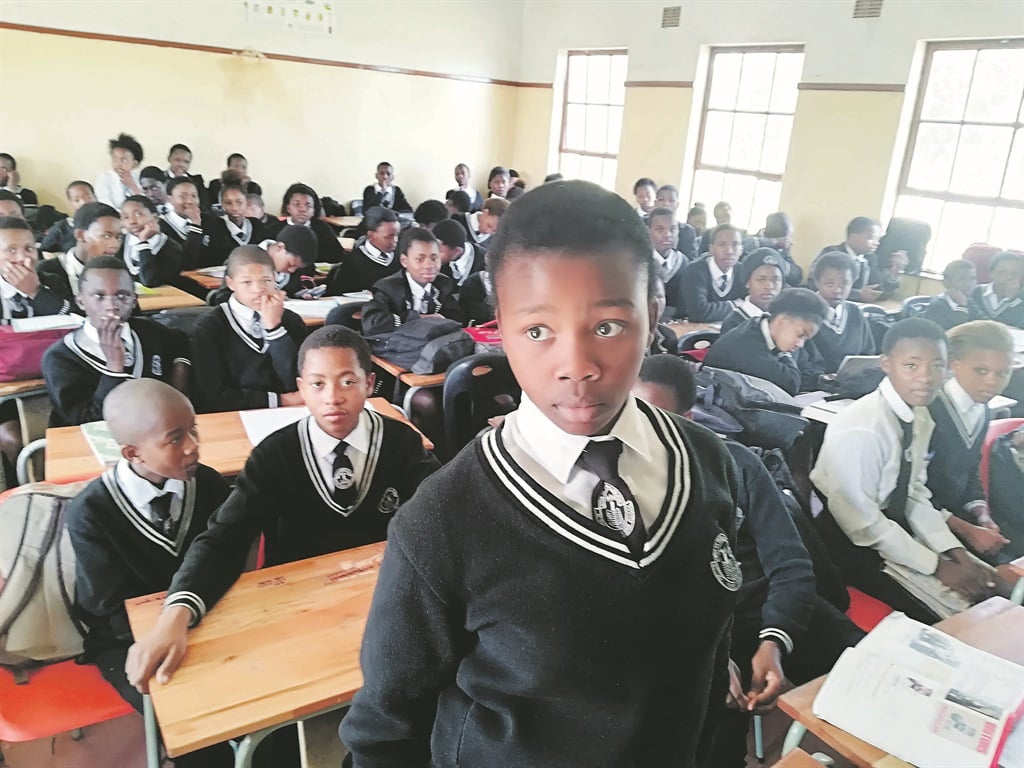
I recently visited my home township of KwaThema in Springs, and I came across a group of teenagers at a local supermarket engaged in a heated debate. Phrases such as tenderpreneur, white monopoly capital, white privilege and broad-based black economic empowerment were being thrown around randomly. So raucous was the debate that it attracted a sizable crowd of curious spectators.
On the one side was a group that believed that it was futile to pursue educational qualifications all the way up to university level. To justify their stance, they cited less educated but “street smart” individuals who they said amassed wealth by scoring tenders. Names such as Bill Gates, Richard Branson and Steve Jobs were thrown into the mix of those who made it big without university qualifications.
“Come on guys, none of these guys have matric, so what’s the point of wasting time on degrees?” rang a voice from one of the teenagers.
The opposite group put up a brave and impressive fight in defending their view that education was an indispensable tool to turn around people’s fortunes, but they were drowned out. Not even Nelson Mandela’s famous quote: “Education is the most powerful weapon which you can use to change the world,” was enough to sway opinion in their favour.
Amid all this, I was reminded of what a special friend, who is now deceased, used to tell me. He liked to remind me that when a man visits his girlfriend and meets her parents for the first time, he must expect to respond to several questions from the family. The most common question usually relates to the prospective groom’s level of education, and whether he can read and write without stuttering and stumbling over his words.
I know that being less educated can be such a limiting or even unpardonable reality. I doubt if this posturing would have swayed the teenagers I encountered at KwaThema, but given the pervasive danger of their view and that of many young people today, it is worth sounding the warning bell.
Before I am branded as being indifferent to inherent problems afflicting some of our less educated people, it’s not my intention here to open a debate about the affordability of education.
I subscribe to the view that the state has a duty to finance education, at least up to a particular level, because it collects taxes from its citizens.
There is a popular phrase that says “uganga ngami ngoba angifundanga”, which loosely translates to “you ridicule me because I am uneducated”.
Generally, an educated person acquires a measure of intellectual prowess which makes them not be susceptible to manipulation or exploitation. An educated or learned person largely has the mental fortitude to enquire, scrutinise and interrogate almost any information they encounter. They resist the temptation to be involved in lynch mob mentality because their mental faculty is developed enough to make informed and rational decisions.
In a country like South Africa, which is experiencing a critical skills shortage, it is a no-brainer that education is an important tool of empowerment we should all embrace. A skilled citizenry and workforce bodes well for any country; it means a greater chance for greater economic development. A country that invests more in quality education is more likely to have a civil citizenry, which will help towards creating a harmonious society. All of these point to one issue: that education has the power to give and/or restore dignity and pride to humanity, especially in the face of grinding poverty, stigma, marginalisation and discrimination.
I have been exposed to some of the finest, highly educated citizens, including doctoral scholars, who are not only qualified in different fields, but are also enlightened individuals who demonstrate the ability to perceive the plain facts of life and explain complex issues affecting humanity, including those around the fourth industrial revolution and its impact on humanity, with a nobility not apparent to everyone.
The palpable feeling of belonging to the “enlightened community” was overwhelming during a recent graduation ceremony at the University of Johannesburg (UJ), where I noticed there were among the audience parents and relatives of graduates. It was an emotional and proud moment for families, considering that some of them, if not many, had to make sacrifices to help their loved ones secure a future. In most cases, the graduate happens to be the first in line in his/her family to have acquired an educational qualification at a university level.
As I sat in my seat witnessing the celebrations, flashes of that scene in KwaThema, where the teenagers were engaged in the fierce argument about the relevance of education, played out in my mind. I couldn’t help wondering what difference it would make if universities started inviting schoolchildren, even from primary level, to attend graduation ceremonies for them to experience such special moments. I am certain that this can be a good gesture that will not only inspire these young citizens, but also go a long way in reclaiming the culture of reading among our youth and embracing education as a special tool.
A scholarly culture can help debunk the misconception that people like Gates and Branson are less educated. Besides, their home countries are developed and have more opportunities. In our case, as a developing economy, we lag behind in many instances. I remind those who think attaining higher education is a waste of time, of the powerful message of English poet Alexander Pope: “A little learning is a dangerous thing. Drink deep or taste not the Pierian spring; there shallow draughts intoxicate the brain and drinking largely sobers us again.”
Teke is UJ council chairperson and chief executive of Seriti Resources, a broad-based black-owned mining company




 Publications
Publications
 Partners
Partners








